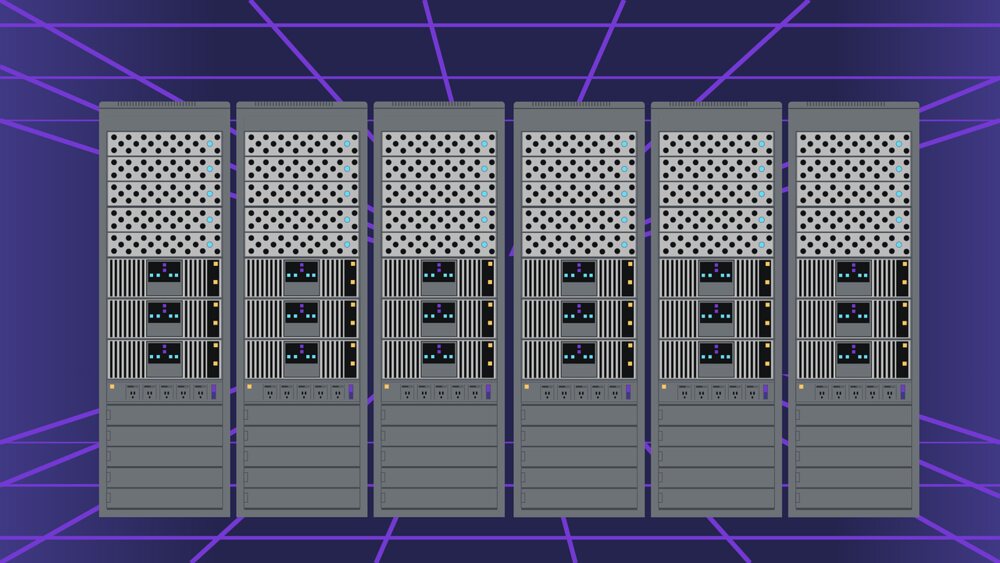
Grow Your Website’s Speed and Security with Shared VPS Technology
In the fast-paced digital landscape, where speed and security are paramount for online success, choosing the right hosting solution can make all the difference. Shared VPS (Virtual Private Server) technology emerges as a compelling option, offering a blend of performance, scalability, and cost-effectiveness tailored for websites aiming to thrive in competitive environments.
Shared VPS Hosting Explained
Shared VPS hosting combines the best of shared hosting and VPS technology. It bridges the gap between affordability and performance by allocating resources in a virtualized environment, where multiple websites share a single physical server’s resources. This setup ensures that each website enjoys dedicated resources within predefined limits, enhancing stability and preventing resource hogging commonly associated with traditional shared hosting.

Enhancing Website Speed with Shared VPS
Website speed is a critical factor influencing user experience and search engine rankings. Slow-loading websites can lead to higher bounce rates, lower engagement, and decreased conversions. Shared VPS technology can address these issues by offering dedicated resources that improve website speed and performance. Unlike shared hosting, where resource allocation can be unpredictable, a shared VPS ensures that your website has access to a specific amount of CPU power, memory, and storage. This dedicated allocation means your website is less affected by traffic spikes or resource-heavy activities from other sites on the same server. Additionally, shared VPS allows for greater control over server configuration, enabling optimizations such as caching, database tuning, and content delivery network (CDN) integration to further boost site speed.
Strengthening Security with Shared VPS
Security is a paramount concern for any website, as vulnerabilities can lead to data breaches, loss of user trust, and significant financial repercussions. Shared VPS technology enhances security by providing isolated environments for each VPS instance. This isolation means that even if other VPS instances on the same physical server are compromised, your website remains secure within its own virtual environment. Shared VPS also allows for customized security measures, such as firewall configuration, intrusion detection systems, and secure shell (SSH) access, giving you more control over your website’s security. Additionally, VPS providers often include security updates and patches in their service offerings, ensuring that your server is protected against the latest threats.
Optimizing Resource Management with Shared VPS
Efficient resource management is another advantage of shared VPS technology. Traditional shared hosting can lead to resource contention, where multiple websites compete for limited server resources, resulting in slower performance. In contrast, a shared VPS allocates specific resources to each instance, minimizing the risk of performance degradation due to resource competition. This dedicated allocation allows you to handle higher traffic volumes and run resource-intensive applications without impacting the performance of your website. Additionally, shared VPS technology often includes advanced resource management tools that enable you to monitor and adjust resource usage based on your website’s needs, ensuring optimal performance at all times.
Scalability and Flexibility with Shared VPS
One of the key benefits of shared VPS technology is its scalability and flexibility. As your website grows and attracts more visitors, you may need to scale your resources to accommodate increased traffic and data demands. Shared VPS allows you to upgrade your allocated resources easily, such as increasing CPU, RAM, or storage, without migrating to a new server. This flexibility ensures that your website can adapt to changing demands while maintaining performance and security. Additionally, shared VPS providers often offer various plans and configurations, allowing you to choose the one that best fits your current needs and future growth.
Fully-Managed VPS Services By HostVai
Cost-Effectiveness of Shared VPS
Shared VPS technology provides a cost-effective solution for website hosting, combining the benefits of dedicated resources with the affordability of shared hosting. Traditional dedicated servers can be expensive, making them less accessible for small to medium-sized businesses. In contrast, shared VPS offers a more affordable alternative without sacrificing performance or security. By sharing physical server resources with other VPS instances, you benefit from lower costs while still enjoying the advantages of a virtualized environment. This cost-effectiveness makes shared VPS an attractive option for businesses looking to balance budget constraints with the need for enhanced website speed and security.
Choosing the Right Shared VPS Provider
Selecting the right shared VPS provider is crucial for maximizing the benefits of this technology. When evaluating potential providers, consider factors such as server performance, customer support, security features, and scalability options. Look for providers that offer reliable uptime, fast network connectivity, and robust security measures. Additionally, ensure that the provider offers flexible plans and easy resource upgrades to accommodate your website’s growth. Reading customer reviews and seeking recommendations can also help you make an informed decision and choose a provider that aligns with your specific needs and goals.

Implementing Best Practices for Shared VPS
To fully leverage the advantages of shared VPS technology, it is essential to implement best practices for managing and optimizing your server. Regularly monitor your server’s performance and resource usage to identify potential issues and address them promptly. Keep your software and applications up to date with the latest security patches and updates to protect against vulnerabilities. Implement security measures such as strong passwords, firewall rules, and regular backups to safeguard your website’s data. Additionally, consider utilizing performance optimization techniques such as caching, database optimization, and CDN integration to enhance your website’s speed and user experience.
Conclusion
Shared VPS technology offers a powerful solution for improving your website’s speed and security. By providing dedicated resources within a shared environment, shared VPS enhances performance, strengthens security, and offers scalable flexibility at an affordable cost. As you explore the benefits of shared VPS, consider implementing best practices and choosing a reliable provider to maximize its potential. With the right approach, shared VPS can be a valuable tool for optimizing your website and achieving your online goals.

Frequently Asked Questions (FAQ)
A VPS is more secure than shared hosting because it provides a separate virtual environment for every user on the physical server.
With shared hosting, you have limited administrative access and can’t customize software configurations, while with a VPS you can perform any actions from your control panel and don’t need to contact technical support with every single request.
When to Use and How to Decide It Is Time to Upgrade? VPS hosting is usually seen as the next step after your website grows out of the resource limits of shared hosting. If the most advanced shared hosting plan is not enough anymore to run your website smoothly, it’s worth upgrading to a VPS plan.